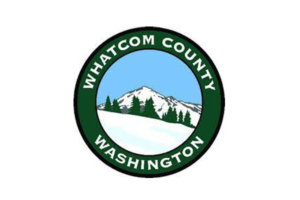Earlier this month I was glad to attend the Community Food Systems Conference hosted by the New Entry Sustainable Farming Project at Tufts University. Not only was it an occasion to reconnect with friends and former clients, to enjoy the local food scene in Boston, and to present with the amazing Kathlyn Terry of Appalachian Sustainable Development and Thea Upham of Farm Fresh Rhode Island—I got to hear a keynote by Winona LaDuke, an environmental activist for indigenous communities (among her many claims to fame). What struck me about her talk wasn’t just the unique spiritual connection native people have with their ancestral lands and foods. It was a short phrase she used offhandedly in making a larger point: the people in this room are lucky to love what they do. She said it confidently and without equivocation. It made me pause and look around. There were over 500 food system workers in that room. As I reflected on my seven years working with this community at New Venture Advisors, I believed her.
After completing dozens of projects and meeting hundreds of clients and stakeholders, we would be hard pressed to come up with an example of someone disenamored of their work. This is remarkable to me for a few reasons. Gallup’s global employee engagement survey consistently finds about 2/3 of workers are not engaged and almost 1 out of 5 are actively disengaged, making others miserable at work. And while I would not have placed myself in either of these two categories, I would definitely say that I was seriously disenamored with my work for a very long time before starting NVA. I was working in the food industry, but unlike the work that made that room so cheerful, mine was in a large corporation that drove us hard around the quarterly earnings cycle. There, “compensation” embodied the full meaning of the economic definition for me.
Looking around that room I was struck by the difference made by the community itself. Being in the company of people who are as genuinely excited about the impact your work is having as their own is contagious. It’s really hard to be grumpy in this positive feedback loop.
Which brings me to my main point about leadership and human flourishing. We all know from our own experiences, good and bad, that leadership models in the workplace have a profound influence on the spirit and wellbeing of workers, amplified in how it impacts their relationships in and outside the workplace. I have experienced this in not such great ways in large companies, where employees and customers are mechanisms for creating shareholder value—a model in which people exist for the benefit of the organization. Now that I am a business owner myself, I am studying the inverse: how does the organization exist to benefit my staff, our clients, their stakeholders, me? How can the organization work for us?
I started this business when my views about work were shifting dramatically, influenced not only by negative models from my past, but even more by exciting new models I found in books like Wikinomics and Go Put Your Strengths to Work. I was part of a dynamic church community and group of fellow entrepreneurs—and here I must also mention my family—that provided incredible support, and a genuine earnestness for my wellbeing and that of my new business. We spent a lot of time discussing what brings about human flourishing, and I began to recognize that this concept had become my model for leadership.
How this translates into the work model is nothing complex. It’s mostly about giving the team as much freedom as possible with a flexible work schedule, letting them choose projects that are rewarding to them, letting no small thing go unpraised, and—when faced with a choice of how to react to something or a decision about the business—a meditation on what will bring about human flourishing.
If there is any point to taking credit, it does not go to me. First of all it doesn’t always work out like the above. I’m often shortsighted, tone deaf and plain wrong. Second, the encouragement from my close circle and the example of this amazing community of food system workers has been a positive feedback loop that keeps transforming me. Finally, and foremost, each member of the awesome NVA team—Saloni, Deb, Patti, Caroline, Jamison, Nori and Melissa—embraces and embodies these values. I have never worked with a team so deserving, and have no greater wish than that they flourish at work, at home and in every way.
So I offer this to the community for your own reflection, recognizing that so many of you have completely committed your lives to this very purpose: What can you do to create businesses, programs, environments and relationships that bring about human flourishing? That is a good goal for 2018.
(Image: MediaGroup_BestForYou / Shutterstock)



